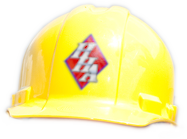You’ve had your heating and air system for quite a few years now and you’re worried it’s just not operating like it used to. You’re thinking it might just need a simple repair or a tune-up, but you also know that a brand new system would be more energy efficient. You’re stuck going back and forth and are spending lots of time thinking about the two options. What should you do?
Should I Repair or Replace?
This is a question we get quite frequently here at Access Heating & Air, and to be completely honest and transparent there’s not one simple cookie cutter answer. There are lots of things to consider, including:
Age of your current system
How much you’re spending on energy bills
Repair costs now
Future repair costs
Rebates
Total cost of ownership
We recommend considering replacement when a large repair is necessary or the age of the system is more than 10 years old. While there are many components to this decision, it’s best to have a FREE in-home consultation where our well-trained experts can provide you with necessary information that will help you make a decision.
Do know that if you decide to have a new, energy-efficient HVAC system installed you’ll not only reduce monthly energy bills – but you could also receive manufacturer rebates and federal tax credits.
Ready to call in the experts to help with your decision? Email us at Kevin@HarbinAir.com – we’re waiting to hear from you!







